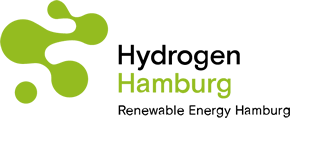Details
Setting the course for a hydrogen-based society From Hamburg to the world: EEHH delegation trip to Japan
The EEHH Cluster Agency joined with the Hamburg University of Applied Sciences (HAW), Hamburg Invest and Hamburg Marketing on a trip to Japan to mark the Expo 2025 Osaka. The delegation visited private and public stakeholders in the Japanese energy industry in Osaka, Tokyo and Fukushima. Their discussions focused on potential cooperation in the area of renewable energies/hydrogen.

The EEHH Cluster Agency joined with the Hamburg University of Applied Sciences (HAW), Hamburg Invest and Hamburg Marketing on a trip to Japan on the ocassion of the Expo 2025 Osaka. The delegation visited private and public stakeholders in the Japanese energy industry in Osaka, Tokyo and Fukushima. Their discussions focused on potential cooperation in the area of renewable energies/hydrogen.
An EEHH RenewablesDay marked the beginning of the delegation trip, with visits to the Daigas Group and Kawasaki Heavy Industries. The Kansai region – which includes Osaka, Kyoto and Kobe – is home to several Japanese industrial and energy companies involved in the production, transport and use of hydrogen and the manufacture of relevant components.
Braving the midsummer temperatures, the delegation remained very enthusiastic, and even the ride on Kansai Airport's fuel cell bus was one of the highlights. Kansai Airport presented its fuel cell minibus as the latest initiative for clean mobility just a few days before the delegation arrived. Based on the Toyota Coaster model, the 22-seater will be used to transport guests at EXPO 2025 and for other purposes that will contribute to achieving the national and regional decarbonisation targets.

Using synthetic gas for climate neutrality
At the Daigas Group in Osaka, the delegation was given some insight into the research and technologies for the production and supply of synthetic gas. The Daigas Group (formerly Osaka Gas) is a municipal gas provider that has been producing gas from coal and oil for the Torishima district in the city of Osaka for many years. Daigas switched its focus to promoting the research and development of climate-neutral technologies with the establishment of the Carbon Neutral Research Hub (CNRH) in 2021. Methanisation is viewed as an important technological process that involves adding carbon dioxide (CO2) to convert green hydrogen into synthetic gas (e-methane).
The Japanese government has designated methanisation as one of the key technologies in the national Green Growth Strategy to achieve the climate protection target by 2050. The aim is to gradually increase the share of e-methane in the municipal gas supply (heating, cooking and water treatment) to 90 percent. Daigas is developing a highly efficient process for the production of e-methane – SOEC methanisation. Harnessing waste heat from methanisation is among the particular advantages of this technology. Water is heated to vapour, which is fed into the SOEC electrolysis process to produce hydrogen. The innovative SOEC methanisation process promises 85 – 90 percent efficiency, compared to conventional Sabatier methanisation with a conversion efficiency of 55 – 60 percent. A guided tour of the SOEC laboratory – which was inaugurated in April – gave the delegation the welcome opportunity to inspect the core components of the electrolyser and to view the special membranes at first hand.
There were also discussions in Germany about the use of synthetic gas many years ago. But power-to-heat technology remains widely preferred in Germany because generating heat directly from electricity, e.g. with a heat pump, comes with clear advantages: lower costs, higher overall efficiency and decarbonisation of the heating sector.
Building the liquid hydrogen supply chain
There is widespread agreement in Japan’s industrial sector that the hydrogen economy will play a key role in the country's future viability. Large companies such as Kawasaki Heavy Industries have adopted a holistic approach. From the production of hydrogen combustion engines and electrolysers to transport by road, rail and water: its business portfolio covers the entire value chain. For forty years now, Kawasaki has been a leading player in the transport and storage of liquid hydrogen (LH2) in particular.
The company announced its plans to use hydrogen as an energy carrier in 2010. Over recent years, the company has focused its business activities on establishing an international supply chain for liquid hydrogen. Kawasaki built the world's first transport vessel for liquid hydrogen, the Suiso Frontier. Adding to this is the import terminal for liquid hydrogen that was built at the Port of Kobe and named Hy-touch Kobe. In addition to the exhaust air stack and boil-off gas compressor, the terminal has a storage tank with a capacity of 2,500 m3.
Kawasaki is testing the feasibility of hydrogen production and long-distance sea transport in a two-stage planning process. In 2022, the Suiso Frontier transport vessel successfully completed a test voyage to carry liquefied hydrogen cooled to minus 253 degrees Celsius from Hastings in Australia to Kobe. The ship covered 9,000 kilometres over the course of the 16-day maritime journey. The demonstration project marks an important milestone in Kawasaki's efforts to scale and commercialise the liquid hydrogen supply chain. Kawasaki is working to build a supply chain for carbon-neutral hydrogen in a consortium with other well-known Japanese and international companies such as Iwatani, Eneos and Shell. The collaboration with Australia is helping to transform the vision of a hydrogen-based society into reality.
Like Japan, Germany will cover a large proportion of its predicted hydrogen demand with foreign imports, e.g. from Northern Europe, South America and the Middle East. The hydrogen derivative ammonia is viewed in Germany as a more efficient carrier medium than liquefied hydrogen thanks to its higher energy density and lower cooling requirements (minus 33 degrees Celsius). In addition, ammonia has been processed around the world in large quantities for several decades and the technology for storage and transport has already reached a proven level of maturity. In Japan, the use/cracking of ammonia is viewed critically for environmental reasons. Ammonia is toxic in high concentrations and may cause damage, e.g. to bodies of water, in the event of leakage.
The long-standing relations between Hamburg and Kobe are shaped by economic cooperation in the port, maritime industry and green energy. As one of the biggest stakeholders in these fields, Kawasaki is an important and popular address for Hamburg-based companies. They also share an interest in liquid hydrogen, as both Japan and Hamburg are facing the challenge of establishing an economically viable and secure import infrastructure. The EEHH Cluster Agency is looking forward to using the visit to build on the ongoing dialogue.

North German knowledge metropolis to share ideas with the twin city
The EEHH Cluster Agency cooperated with Hamburg Chamber of Commerce/Finanzplatz Hamburg e.V., Hamburg Invest and Hamburg Marketing to organise a business seminar entitled "Hamburg: North German knowledge metropolis” in Grand Cube Osaka. Its aim was to showcase Hamburg as a strong partner in renewable energies, finance and innovation and to widen its relationships with local stakeholders and partners. Around 70 participants from the regional political and business communities accepted the invitation.
The event was opened by Finance Senator Andreas Dressel as the official political representative of the City of Hamburg. He emphasised the importance of the long-standing partnership between the two cities and called for closer cooperation in the areas of digitalisation, climate protection and innovation. Prof Hans Schäfers (HAW Hamburg) used the subsequent keynote to discuss Hamburg's role in the German energy transition. Drawing on practical insights into the general environment and projects, he highlighted the opportunities and challenges that the hydrogen ramp-up will hold for Hamburg.
The business seminar was welcomed with great interest from the audience, and the EEHH Cluster Agency was able to establish direct contact with METI Kansai (Japanese Ministry for Economy, Technology and Industry, Kaisai Bureau), among others. Continued dialogue and shared activities are on the agenda for a return visit to the Hydrogen Technology Expo World 2025 in Hamburg in October of this year.
The EEHH Cluster Agency would like to thank the other Hamburg stakeholders for their excellent cooperation and the kind support of METI Kansai and the City of Osaka.
There will be another report on visits to Tokyo and Fukushima.


